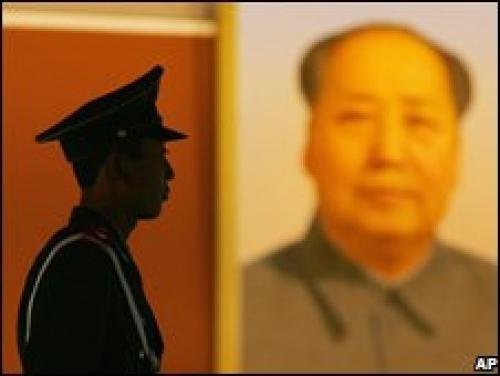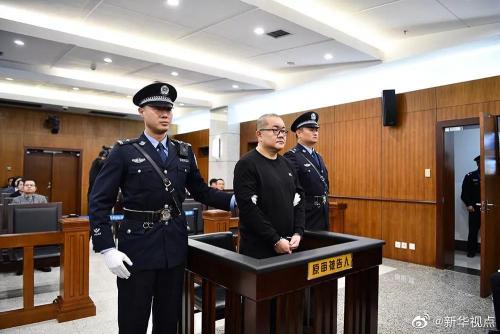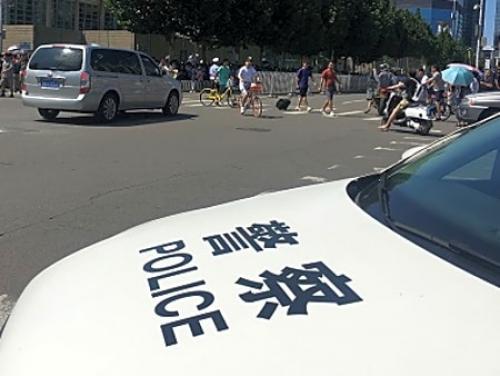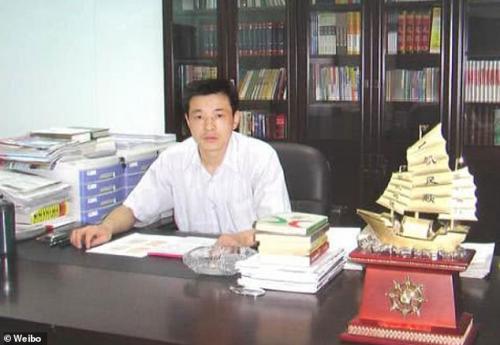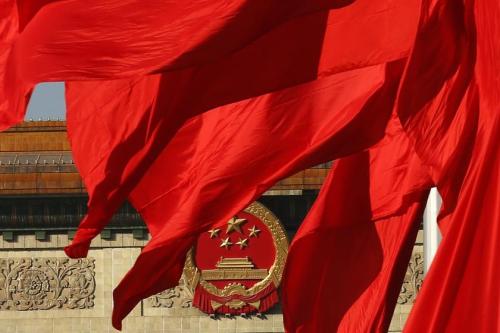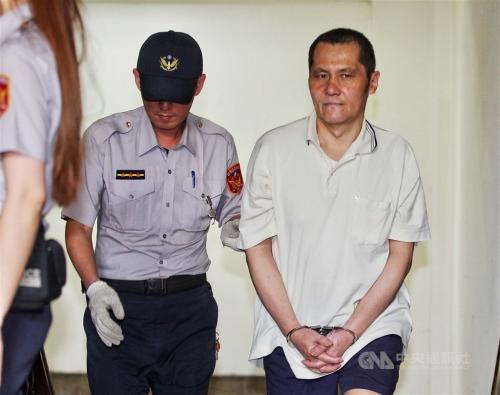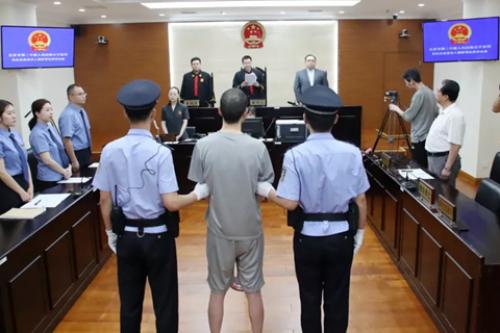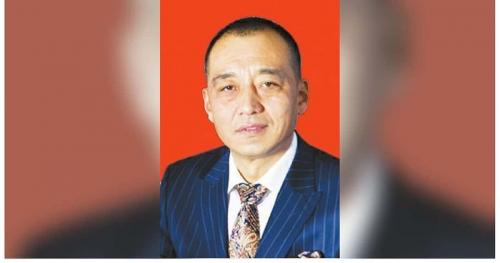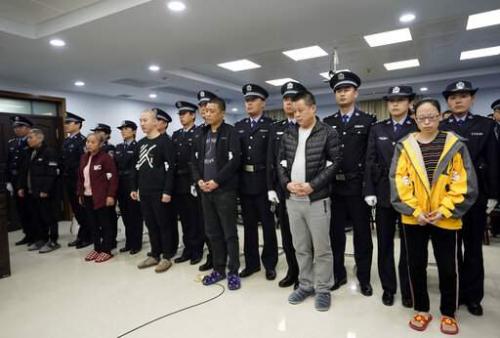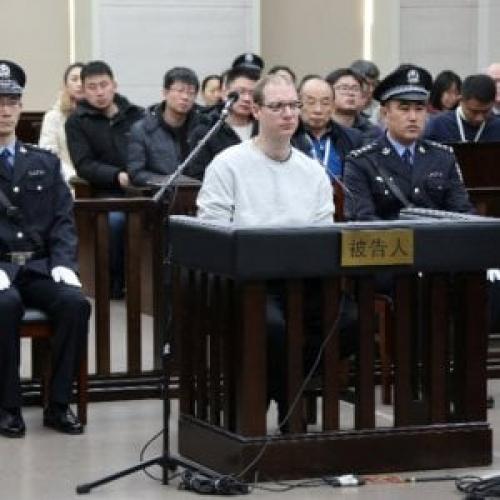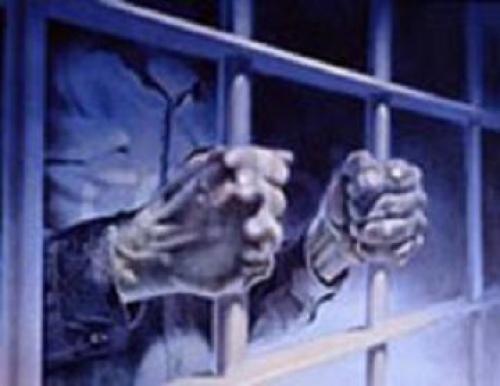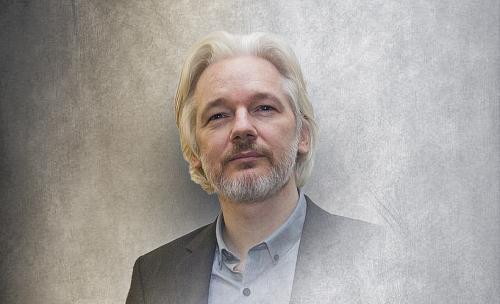situation:Under the current law, 46 crimes are subject to the death penalty, among which one-third are economic crimes such as corruption and bribery.
On 29 August 2015, the Standing Committee of the National People’s Congress (NPC) amended the Criminal Law, eliminating the death penalty for nine crimes, including smuggling weapons, ammunition, nuclear materials or counterfeit currency; counterfeiting currency; raising funds by means of fraud; arranging for or forcing another person to engage in prostitution; obstructing a commander or a person on duty from performing his duties; and fabricating rumours to mislead others during wartime. The maximum penalty for those crimes would become life in prison. The removal of the death penalty from these nine offenses would not put much of a dent in China’s world-leading use of capital punishment, which largely focuses on homicide, rape, robbery, and drug offenses. It would, however, show the government continuing to make good on its pledge to work towards gradual abolition of the death penalty.
Just before passing the amendment to the Criminal Law, the Standing Committee inserted a last-minute provision regarding the offenses of corruption and taking bribes. The provision authorizes courts, in certain cases, to add a condition at the time of sentencing to require an individual to spend life in prison without possibility of sentence reduction or parole. The condition may only be applied in corruption cases where the defendant received a suspended death sentence and had that sentence commuted to life imprisonment after the two-year period of reprieve. Individuals given suspended death sentences can potentially leave prison after serving terms not much longer than the maximum sentence of fixed-term imprisonment, or about 18 years.
The introduction of life without parole in serious corruption cases could clear the way for China to eventually eliminate the death penalty for corruption, but may have wider implications for abolishing the death penalty in China, as in the future it could be extended to other types of crime, including violent offenses.
It was the second time that China reduced the number of crimes that could be subject to death sentence since 1979 when the current Criminal Law took effect. In February 2011, the National People’s Congress passed an amendment to the Criminal Law, reducing the number of crimes punishable by death from 68 to 55. The 13 crimes were economic-related and non-violent offences.
In 2011, it was also stipulated that the death penalty will not be imposed on people aged 75 or older at the time of trial, except if they commit a murder with exceptional cruelty. Previously, only convicts younger than 18 when the crime was committed, and pregnant women at the time of the trial, were exempted from capital punishment.
Officially the World’s Record-holder for Executions (Despite a Continued Reduction)
China executes more people every year than the rest of the world combined, although the exact figure is not published and considered a state secret. In 2016 year the country carried out about 2,000 death sentences, according to estimates by the Dui Hua Foundation, a human rights NGO based in the United States. It is likely that the same number of executions, about 2,000, was recorded in 2017.
This number of executions was a fall of 30 percent from 2012, when Dui Hua estimated that China executed 3,000 people, and a precipitous drop from 6,500 executions in 2007 and 12,000 in 2002.
A major turnabout came after the introduction of a legal reform on 1 January 2007, which required that every capital sentence handed down in China by an inferior court is reviewed by the Supreme People’s Court (SPC). Furthermore, since February 2010, the Supreme People’s Court has recommended to use a policy of “justice tempered with mercy,” suggesting to the courts to “suspend the death sentence for two years for all cases that don’t require immediate execution.”
According to the Dui Hua Foundation, the reduction was likely brought about by: greater use of sentence of death with two-year reprieve (which is nearly always com- muted to life imprisonment or a fixed-term sentence), improvements in due process rights recently codified in revisions to the Criminal Procedure Law (CPL), continued review by the Supreme People’s Court, and the decision to move away from using executed prisoners as the country’s primary “organ donors.”
In August 2015, the Standing Committee of the National People’s Congress (NPC) amended the Criminal Law, eliminating the death penalty for nine crimes, including smuggling weapons, ammunition, nuclear materials or counterfeit currency; counterfeiting currency; raising funds by means of fraud; arranging for or forcing another person to engage in prostitution; obstructing a commander or a person on duty from performing his duties; and fabricating rumours to mislead others during wartime. The maximum penalty for those crimes would become life in prison. The removal of the death penalty from these nine offenses would not put much of a dent in China’s world-leading use of capital punishment, which largely focuses on homicide, rape, robbery, and drug offenses. It would, however, show the government continuing to make good on its pledge to work towards gradual abolition of the death penalty.
It was the second time that China reduced the number of crimes that could be subject to death sentence since 1979 when the current Criminal Law took effect. In February 2011, the National People’s Congress passed an amendment to the Criminal Law, reducing the number of crimes punishable by death from 68 to 55. The 13 crimes were economic-related and non-violent offences.
Policy of “Justice Tempered with Mercy”
On 9 March 2018, in his report to the annual session of the National People’s Congress, the President of the Supreme People’s Court (SPC), Zhou Qiang, in keeping with the Government’s customary secrecy, gave no figures for the number of death sentences or executions.
Chinese courts have strengthened efforts to protect human rights in judicial practices, according to the report for 2013-2017. Death penalty decisions were strictly reviewed to make sure that death sentences only apply to an extremely small number of criminals for extremely severe offenses, it said. The report noted that the SPC has worked with the Ministry of Justice to enhance the legal aid system. A total of 31,527 prisoners were granted amnesty across China in the past five years, said the work report of the Supreme People's Court.
Supreme Court’s Reforms
The reform, which took effect on 1 January 2007, is considered one of the most significant reforms concerning the death penalty in the last twenty years. It signals a turn-around from the “hit hard” approach taken on in the Eighties that brought the Supreme Court to delegate final decisions regarding capital punishment cases to the lower provincial courts.
According to the new provision, the review of each case should be carried out by three judges of the Supreme Court, who must re-examine all evidence, the laws applied, the appropriateness of the sentence, the arguments of the preceding trial and they must hear the accused in person or by letter before reaching a final decision. If the judges find the evidence insufficient, the sentencing inappropriate or the trial arguments illegal, they present the case to the Judicial Committee of the Supreme Court. The committee examines the case along with a prosecutor from the Office of the Attorney General Supreme of the People.
After the reform of 2007, China has continued to take new measures to limit the number of death sentences and prevent wrongful convictions in capital cases.
In May 2008, China’s Supreme Court and Ministry of Justice jointly issued regulations on the protection of defence lawyers’ roles in capital cases to ensure that defendants’ legal rights were upheld. Some provisions of the regulations include: legal aid institutions must designate lawyers with criminal defence experience in capital cases; lawyers shall not transfer such cases to assistants and must meet the defendant before trial; the Court must inform “interested parties,” lawyers and prosecutors of any date change for court hearings three days ahead of time; the Court must notify lawyers if prosecutors submit new evidence or re-evaluate the case before a re-trial.
In 2011, the Supreme Court recommended the courts to “suspend the death sentence for two years for all cases that don’t require immediate execution.” In normal law practice, a sentence of death with two years’ reprieve is ultimately commuted to lifetime imprisonment after two years. The court has also recommended to “applying the death penalty to a very small minority of criminals committing extremely serious crimes.”
In March 2012, the National People’s Congress, once again, amended the 1979 Criminal Procedure Law, highlighting human rights protection. The new clause requires judges from the Supreme Court to interrogate offenders sentenced to death and listen to defendants’ lawyers when a capital punishment case is under review. The amendment, for the first time, has also made clear that confessions extorted through illegal means, such as torture, and witness testimony and depositions of vic- tims obtained illegally, such as by violence or threats, should be excluded during the trials. To institutionally prevent extortion of confession, the amendment has regu- lated that suspects be sent to a detention facility for custody after being detained or arrested and be interrogated there. The process of interrogation shall be audio or video-taped.
On 22 January 2015, the Supreme People’s Court reiterated the criteria for capital punishment should be strictly observed so as to ensure “the penalty is only used on an extremely few convicts whose crimes are extremely serious.”
Transparency of Court Proceedings
Acquittals in China’s Communist-controlled court system have been extremely rare in the past, given that almost all of defendants were ever found guilty, according to official statistics. China has occasionally exonerated wrongfully convicts after others came forward to confess their crimes, or in some cases because the supposed murder victim was later found alive.
In the 2013-2017 period, Chinese courts reopened trials of 6,747 criminal cases and rectified the sentences, according to the work report of the Supreme People's Court (SPC), delivered on 9 March 2018 at the first session of the 13th National People's Congress. A total of 2,943 suspects prosecuted by the state were acquitted, compared to a total of 6.07 million suspects who were convicted in the first trials of 5.49 million criminal cases, a conviction rate of 99.96 per cent.
According to the plan for 2018, the SPC “will provide better judicial service for ordinary people, respect lawyers' right to exercise their duties, and make sure the execution of court orders.” The SPC “will continue pushing forward judicial reforms and further enhance transparency of court proceedings and legal documents,” said the work report.
Death penalty and corruption
The President Xi Jinping launched an anti-corruption campaign four years ago, however legislative reforms have been adopted to contain the use of the death penalty for these crimes. Last executions for corruption dated back to 2011, when three high officials were executed for taking-bribes.
According to the current Chinese Criminal Law with the 9th Amendment adopted in 2015, the death penalty is applicable to both embezzlement and bribe-taking, but only when “the amount involved is extremely large, which caused extreme damage to national and people’s interests” (Articles 383 & 386).
The 9th Amendment in 2015, for the first time in the PRC’s penal history, adopted “Life Imprisonment without Possibility of Parole” (LWOP) as an official punishment applicable to embezzlement and bribe-taking cases. The LWOP is only optional (subject to judicial discretion) after one is sentenced to the death penalty with a two-year suspension and successfully serves the two-year reprieve period. [see chapter: “Death penalty for non-violent crimes and for political motives and dissent”]
On November 2, 2015, the Supreme People’s Court (SPC) adopted the “Sentencing Guidelines on Embezzlement and Bribe-taking Cases”, in which the SPC raised the threshold amount that could trigger the use of capital punishment in embezzlement and bribe-taking cases to 100 million yuan. It was suggested that generally, life imprisonment should be applied for cases with less than 100 million yuan, and that the death penalty with a two-year suspension be applied for cases with an amount above 100 million yuan, while the death penalty with immediate execution should be available for extreme cases. Although this document is not an official interpretation of the Criminal Law, but an internal document, it is likely to influence lower courts.
On April 18, 2016, the SPC and the Supreme People’s Procuratorate (SPP) adopted the “Interpretation on Issues with regard to How to Handle Embezzlement and Bribe-taking Cases” – this time, it was an official interpretation. In this interpretation, the SPC and the SPP lowered the threshold amount to 3 million yuan, which is seen as equivalent to the “extremely large amount” stipulated in the 9th Amendment. Moreover, the interpretation points out that the death penalty is also applicable to cases with an amount of 1.5 million yuan or more, when there are other “extremely severe circumstances”.
Such legal changes regarding the use of the death penalty need to be examined from a historical perspective: In 1979, the first Chinese Criminal Law made the death penalty applicable to both embezzlement and bribe-taking, when the “circumstances are extremely severe”. In 1988, the Standing Committee of the National People’s Congress set the amount threshold to 50,000 yuan for embezzlement and 10,000 yuan for bribe-taking. In 1997, the revised Criminal Law raised the threshold to 100,000 yuan. Despite the tug of war between the SPC and the SPP, the threshold amount, as discussed above, is set much higher now (at 3 million yuan).
According the report of the Supreme People's Court (SPC) presented on 12 March 2017, by the President Zhou Qiang at a plenary meeting of the annual session of the National People's Congress, China's court system concluded 45,000 graft cases in 2016, implicating 63,000 people. Courts at all levels convicted 2,862 criminals of bribery, and concluded 15,000 cases involving corruption in poverty alleviation. In 2016, procurators investigated 47,650 people for their suspected involvement in duty-related crimes . The defendants included 35 former officials at the provincial and ministerial level or above, and 240 at the prefectural level.
Two have been sentenced to death with a two-year reprieve and no further commutation or parole permitted if death penalty is commuted to life imprisonment after the two-year reprieve against Bai Enpei, for taking 250 milions of yuan of bribes and against Zhu Minguo, for 140 milions of yuan of bribes and one to death with immediate execution, Zhao Liping who was sentenced to death also for murder.
The War on Drugs
According to China’s Criminal Law, a drug dealer can be sentenced to death for producing, transporting or trafficking more than 50 grams of heroin or one kilogram of opium. Traffickers caught with 150 kilograms of marijuana can also face the death penalty. The most lenient sentence for such a crime is 15 years.
On 7 April 2016, the Supreme People's Court (SPC) released a new judicial interpretation on rules for drug-related convictions and sentencing, stepping up punishments. The document adopted stricter rules for ketamine by lowering the threshold for criminalization of the drug by half. The new document also added 12 new types of illegal drugs to be subject to criminal penalties and lowered the threshold for conviction of illegal use for 33 precursor chemicals.
The March 2016 Supreme Court’s report to the annual session of the National People’s Congress shows that (illegal) drugs are an increasing problem in China. The courts at all levels concluded 139,024 drug-related cases in 2015, an increase of over 30 percent compared to 2014. A total of 137,198 drug defendants were sentenced and almost 20 percent of them received heavy penalties – five years of imprisonment or above, including capital punishment.
The actual number of executions for drug-related crimes is unknown, although it has decreased in 2016-2017 compared to previous years. It is probable that this change is a reflection of the reform passed on 1 January 2007 that passed judicial review of death penalty cases back to China’s Supreme People’s Court, as well as the directive of the same court holding that the death penalty should be imposed on an “extremely reduced number of hardened criminals.” Regardless, as has long been the case in China, death sentences and executions increased markedly around National holidays and dates of symbolic international importance such as the International Day against Drug Abuse and Illicit Trafficking on 26 June.
The “Human” lethal injection
In China, executions are mostly carried out with a shot to the back of the head or the heart from close range.
An amendment to China’s Criminal Procedure Law in 1996 allowed for executions by lethal injection, using the same three-drug cocktail pioneered by the United States. “Lethal injection is considered more humane, because it reduces the fear and suffering,” Chinese authorities said. “It is more acceptable for convicts and their family members.” Hu Yunteng, head of the Supreme People’s Court’s Research Bureau, said that lethal injection was considered cleaner, safer and more convenient than gunshot executions.
Kunming, the provincial capital of Yunnan, was the country’s first city to adopt lethal injection on 28 March 1997.
It is impossible to know how many people have died by this method so far, as execution figures are a State secret in China. However, it seems that execution by lethal injection instead of shooting is a "privilege" reserved for foreign citizens.
On 28 February 2017, Ismael Arciniegas, a 72-year-old Colombian national sentenced to death for smuggling cocaine, was executed by lethal injection.
China has also introduced mobile execution units. The units consist of specially-modified vans manned by execution teams and equipped with facilities to put people to death with lethal injections close to the venue of the trials. This removes the need to transfer prisoners to execution grounds, a procedure that requires consider- able security measures. Convicts are strapped to gurneys a few minutes after their death sentences become final, the needle is inserted into their arm, a member of the execution team presses a button, and the fatal chemicals are injected into their veins. Executions in death vans are recorded on video and audio that is played live to local law enforcement authorities – a measure intended to ensure they are carried out legally.
Human rights observers believe that the transition from firing squads to injections in death vans would facilitate an illegal trade in prisoners’ organs. Injections leave the whole body intact and require participation of doctors. Organs can be extracted in a speedier and more effective way than if the prisoner is shot.
In the past, human rights’ organisations have denounced the link between the high number of executions in China and the growing demand for organ transplants, accusing the Chinese authorities of forcing those condemned to death to sign authorisations to remove their organs for transplant. The regime admitted in 2005 that it had been harvesting the organs of prisoners on death row, a practice that started in the mid-1980s, and in July 2006 China passed a law banning the sale of organs without the consent of the donor. However, illegal organ harvesting seems to have not decreased. A revision to China’s Criminal Law, which the top legislature adopted in February 2011, marked the first time for authorities to single out criminal activity related to transactions involving human organs. Criminals convicted of “forced organ removal, forced organ donation or organ removal from juveniles” could face homicide charges as a result of the revision. However, in March 2012, then Vice- Health Minister Huang Jiefu confirmed that executed prisoners were still the main source of organs used in transplant operations in China due to the lack of voluntary donations. In December 2014, Huang Jiefu, now head of the Health Ministry’s organ transplant office, said that by 1 January 2015, only voluntarily donated organs from civilians can be used in transplants. A 2008 paper – prior to the 2015 ban – co-authored by Jiefu published in The Lancet, suggested that more than half of organ transplants in China came from death row prisoners.
However, organs from prisoners, including those on death row, can still be used for transplants in China, according to Chinese official sources.
On 7 February 2017, Huang Jiefu, director of Beijing’s transplant program, said at a Vatican summit that China may still be using organs farmed from the bodies of executed prisoners, despite China declaring zero tolerance for the practice at the end of 2014. Huang Jiefu, who is also a former deputy health minister, said to reporters: “There is zero tolerance. However, China is a big country with a 1.3 billion population, so I am sure, definitely, there is some violation of the law.”
The spiritual group Falun Gong, which was outlawed in China in 1999, is one of the most outspoken groups against organ harvesting. Members of the group, and supportive Western politicians, have suggested that waiting times for organ transplantation in China are so short due to the harvesting from prisoners.
The War on Terror
Since the attacks of 11 September against the U.S.A., the Chinese Government has used the war on terrorism as a pretext to harden its iron fist against all forms of political or religious dissent in the country. Suspected separatists or religious extremists have, for years, risked arbitrary imprisonment, isolation, torture and, at the end of the polluted process, jail or execution. In particular, China passes off repression against Tibetans and the Uyghurs as part of the war on terrorism and exercises pressure on its neighbours such as Kyrgyzstan, Kazakhstan, Nepal and Pakistan to force them to repatriate exiled members of Xinjiang’s Muslim Turkic-speaking Uyghur population. Many of the repatriated Uyghurs have suffered serious violations of their human rights including torture, unfair trials and, also, execution.
On 27 December 2015, China passed a controversial new anti-terrorism law that attracted deep concern in Western capitals, not only because of worries it could violate human rights such as freedom of speech, but because of the cyber provisions. While a provision in an initial draft that would require companies to keep servers and user data within China was removed from the final law, technology companies will still have to provide help with sensitive encryption information if law enforcement authorities demand it. The anti-terrorism law also permits the People's Liberation Army to get involved in anti-terrorism operations overseas. The new law also restricts the right of media to report on details of terror attacks, including a provision that media and social media cannot report on details of terror activities that might lead to imitation, nor show scenes that are "cruel and inhuman".
Convictions for state security crimes including "violent terrorism" nearly doubled in 2015, figures from China's top court showed, following a "strike hard" campaign to quell unrest in the largely Muslim region of Xinjiang and crackdowns on civil society. Chinese courts convicted 1,419 on charges related to "endangering national security and violent terrorism" in 2015, Zhou Qiang, head of the Supreme People's Court, said in a report to the annual session of the Communist-controlled National People's Congress (NPC) on 13 March 2016. Chinese courts sentenced 1,084 people for "violent terrorist crimes" and another 335 for other crimes related to "endangering national security". The majority of the convictions seem to be related to Beijing's launch last year of a "strike hard" campaign in Xinjiang aimed at stopping unrest that has claimed hundreds of lives. Since starting the campaign in 2014, the government has jailed hundreds, put scores to death, and perhaps killed hundreds more in police actions that have been widely decried by human rights campaigners.
In 2015, China executed at least 3 Uyghurs for “terrorist attacks”. No news of execution was recorded in 2016. Unknown in 2017.
The death penalty for nonviolent crimes, political motives and dissent
The restitution in 2007 to the Supreme People’s Court of China of exclusive power in approving death sentences has caused the country’s courts to handle capital cases with greater prudence, in particular, those relative to non-violent crimes. In February 2010, China’s highest court has also issued new guidelines on the death penalty that instruct lower courts to limit its use to a small number of “extremely serious” cases.
Under the current law, 46 crimes are subject to the death penalty, among which one-third are economic crimes such as corruption and bribery.
In August 2015, the Standing Committee of the National People’s Congress (NPC) amended the Criminal Law, eliminating the death penalty for nine crimes, including non-violent crimes, such as counterfeiting currency, raising funds by means of fraud, and arranging for or forcing another person to engage in prostitution. The maximum penalty for those crimes would become life in prison.
Just before passing the amendment, the Standing Committee inserted a last-minute provision altering Article 383, which covers the offenses of corruption and taking bribes. The provision authorizes courts, in certain cases, to add a condition at the time of sentencing to require an individual to spend life in prison without possibility of sentence reduction or parole. The condition may only be applied in corruption cases where the defendant received a suspended death sentence and had that sentence commuted to life imprisonment after the two-year period of reprieve. Individuals given suspended death sentences can potentially leave prison after serving terms not much longer than the maximum sentence of fixed-term imprisonment, or about 18 years.
In April 2016, China’s Supreme People’s Court and the Supreme People’s Prosecutor’s Office, the country’s highest judicial authorities, ruled the death penalty will be applicable to corrupt leaders who embezzle funds or accept bribes of over $463,000.
On 1 June 2017, after months of haranguing by foreign chambers of commerce, symposiums about draft versions of the law, and many news stories, the Cybersecurity Law went into effect. The law lists the death penalty as one of the worst penalties related to the state secrets provision in the law. The law also requires critical information infrastructure operators to protect "important information", though the law does not clearly delineate what information is important. The consensus in this important information refers to state secrets, intellectual property, and consumers' personal information. The most significant change is that Chinese citizens' "personal information" and "important data" must now be stored on servers within China. Any companies claiming an exception that is "truly necessary" must undergo a security assessment before information can be released.
Authorities continued to implement repressive policies in the Xinjiang Uyghur Autonomous Region (XUAR) and targeted the region’s ethnic Uyghur population. Officials in the XUAR continued to implement a pledge to crack down on the government-designated “three forces” of “religious extremism”, “splittism,” and “terrorism”. Possession of publications or audio-visual materials discussing independence, autonomy, or other sensitive subjects was not permitted.
In a report of Dui Hua Foundation on the China’s average of the length of time spent on death row depends on individuals or crimes. For example, all 16 Uyghurs in the sample – 13 of them executed in June 2014 and another 3 in March 2015 – had their executions for terrorist activity carried out between five and nine days after the SPC approved their sentences, when the general average is of 50 days. This means that warrants for execution had to have been issued more or less simultaneously with the court’s decision to approve capital punishment. In fact, the timing of executions may be tied to the social and political value of their publicity. Most of the Uyghurs were executed after region-wide mass rallies were covered widely in the national press in 2014 in an apparent attempt to show government resolve to combat violent terrorism.
In November 2016 the Supreme People’s Court (SPC) published China’s most recent interpretation of the Criminal Law’s articles on sentence reduction and parole. The regulations, which take effect on 1 January 2017, will tighten rules for granting reduced sentences and parole to prisoners serving time for endangering state security (ESS) and other serious crimes including corruption. They reflect a 2014 guiding opinion from the Communist Party’s Political and Legal Commission that mandated tougher rules for “three types” of crimes including bribery, financial fraud and organized crime—and they are considerably more detailed than the Court’s previous interpretation on sentence reduction and parole, issued in 2012.
Persecution of adherents to religious and spiritual movements
The Chinese authorities recognise, in concept, freedom of religion as a fundamental human right in the country’s Constitution and as established by principle international treaties. Regardless, religious freedom is sharply curtailed.
In 2017, religious and ethnic minorities remained a key target of repression, in particular religious or spiritual movements not authorised by the State: Protestants and Catholics, Uyghur Muslims and Tibetan Buddhists. The Government has also continued its persecution of so-called “cult” movements, in particular, the Falun Gong.
On 1 January 2007, a new law went into effect “to regulate these religions.” Approved in September 2006 by the Permanent Government Commission for Tibet, rather than guaranteeing religious freedom, the law actually reinforces the power of Chinese officials in restriction, control and repression of religious beliefs. The level of liberty of worship depends on the region. For instance, in Xinjiang, there is a rigid control exercised over Muslims, whereas, in the rest of the country they enjoy relative freedom. The same is for Buddhists of Inner Mongolia and Tibet as compared to other regions. In Henan, Protestants undergo heavy prosecution, while in Hebei it is the Catholics linked to the Vatican.
According to norms governing religious activity, places of worship must be authorised by the State and it is not uncommon for the police to raid private homes where the faithful have gathered to disrupt the meeting with the excuse that the neighbours were disturbed or that the gathering was otherwise socially disruptive, sometimes arresting participants and forbidding them to meet in the same place again. Saying Mass was once met with harsh punishment such as detention or actual arrest followed by re-education or prison.
In the Xinjiang Uyghur Autonomous Region, an increased security presence that followed ethnic clashes in 2009 remained in place, and authorities intensified curbs on Islam in the region.
On 1 April 2017, China banned “abnormal” beards and full-face coverings in the Xinjiang as part of tighter “anti-extremism” regulations that also prohibit rejecting state media. The new legislation lists a wide range of restrictions, including rejecting or refusing “radio, television or other public facilities and services”, marrying using religious rather than legal procedures and “using the name of Halal to meddle in secular life of others”. The rules also ban not allowing children to attend government schools, not abiding by family planning policies, wearing robes that cover the whole body and face and “abnormal growing of beards and naming of children to exaggerate religious fervour”, according to the text of the rules published on a government website. A number of similar regulations had previously been introduced in some places in Xinjiang. The new rules, however, expand the list and formally apply them to the entire region.
In Tibet, the Chinese authorities have strengthened the campaign against separatism and for maintaining stability despite no threats occurred and have forbidden most res- idents to travel abroad. Among this, there is the program of demolitions and evictions from the monastery complex of Larung Gar in Serta in Sichuan, according to which the largest Tibetan Buddhist community in the world will be reduced from the current 10,000 inhabitants to no more than 5,000 in September 2017 The Tibetan writers Shokjang and Lomik were sentenced to three and seven and a half years of prison respectively, while Lu Konchok Gyatso and Tashi Wangchuk remain under arrest. At least four Tibetans are believed to have died in custody, including the nun Yeshe Lhakdron, who has not been seen since her arrest in 2008.
Beijing permits the practice only within the framework of the Movement of the Three Autonomies (MTA), born in 1950 after Mao came to power and expelled both foreign and Chinese church leaders from the country. Official records indicate that there are 10 million official Protestants in China, all united by the MTA.
In the past 30 years, however, Protestant house churches have become a major phenomenon, with more than 50 million members who meet in homes or otherwise private places to pray, carry out ceremonies and hold assemblies. Their love for free worship has led them to reject official Protestant Churches, guilty in their eyes of “worshipping the party” rather than God. During the same period, Chinese authorities tried to suppress this uncontrolled movement by jailing pastors, torturing believers and destroying homes and places of worship. In 2012, China has launched an all-out campaign against house churches, ministers and believers that should be completed in ten years with the complete annihilation of house churches, the China Aid Association said based on Communist Party sources and documents.
The Government continued its repression of so-called “cults,” in particular, of practitioners of the Falun Gong. Members of the Falun Gong continue to be arrested, detained and there is evidence that points to some dying from torture and other abuses. Members that refuse to abjure their beliefs often suffer cruel punishments in prison or in re-education work camps and extra-judiciary detention centres.
The documentation on abuses is difficult to confirm within the country, particularly for a group that has no public profile. Practitioners living abroad confirm the situation that is the result of State-run persecution that began in 1999. Hundreds of thousands – if not millions – remain unlawfully imprisoned in Chinese labour camps and prisons, the largest single population of prisoners of conscience in the country. Tens of thousands have suffered torture at the hands of police and security agents.
At least 974 practitioners were sentenced to imprisonment for practicing Falun Dafa between January and December 2017, according to reports from en.minghui.org, the official Falun Gong website. In 2017, at least 72 practitioners, who had been given prison sentences, lost their lives for refusing to renounce their faith. Some died while still imprisoned, while others perished after they were released either on medical parole or after their terms were completed. Due to the Chinese communist regime’s information blockade, the actual number of practitioners who have died in the persecution is likely to be much higher than the number of confirmed deaths.
The top secret death
Information related to the death penalty, including the number of executions carried out each year, continue to be treated as a closely guarded “state secret.” This is despite the fact that there are many indications that China has significantly reduced its use of capital punishment over the past decade.
Previously, information filtered through diplomatic channels and to western reporters, but starting in 2002, some information is coming directly from internal sources of the regime.
In Disidai (The Fourth Generation), a Communist Party member writing under the pseudonym Zong Hairen said 15,000 people had been sent to their death in China between 1998 and 2001. Disidai was published in 2002 in article form in the Wall Street Journal. The book was based on confidential reports compiled by the Communist Party’s highly trusted organisation department in order to assist the Politburo in considering candidates for the highest offices, that is, to become the fourth generation of Chinese Communist leadership. The total number of execu- tions mentioned was more than four times higher than the highest estimates ventured by western analysts. Andrew J. Nathan and Bruce Gilley, confirm the staggering total in their book “China’s New Rulers” based on Disidai.
In March 2004, Chen Zhonglin, a member of the People’s National Congress in Beijing, said that China carries out 10,000 executions every year. His declaration was published on the China Youth Daily on 15 March 2004. This was the first time that a similar declaration was published by a State-controlled newspaper.
In February 2006, Liu Renwen, law professor and director of Criminal Law Department of the Institute of Law under the Chinese Academy of Social Sciences, reaffirmed that 8,000 people were executed each year in China, according to estimates circulated in academic circles.
According to William A. Schabas, Professor of international law at Middlesex University in London, in 2012 “China has probably executed about 3,000 people,” an estimate shared by some of the most senior academics in the country in the field of criminal justice, judges from courts around the country and other professionals from the criminal justice system. Also according to the US-based Dui Hua Foundation’s estimate, the number of executions in 2012 amounted to “about 3,000 executions.” The Dui Hua Foundation estimated that China had carried out “about” 4,000 executions in 2011, while there were “about” 5,000 in 2010, as in 2009, still a slight decrease as compared to 2008, when the number of executions “exceeded 5,000 and may have been as high as 7,000.” According to the Foundation, about 6,000 people were executed in 2007, a 25 to 30 percent drop from 2006, in which estimates reported at least 7,500 executions. The Dui Hua Foundation estimated that China executed approximately 2,000 people in 2016, less than in 2015 when the estimate was 2,400, roughly the same number in 2014 and 2013. It based its 2013 estimate on data points published in the influential Southern Weekly newspaper, based in Guangzhou, whose data are consistent with information provided to Dui Hua Executive Director John Kamm in early 2014 by a judicial official with access to the number of executions carried out each year in China.
In April 2016, Dui Hua reviewed decisions concerned 525 individuals which were handed down by the SPC between April 2011 and November 2015. The SPC rejected the death sentences given to only 11 individuals, leaving 514 facing execution. Then, Dui Hua drew upon public execution reports and was able to con- firm the executions of 102 of the 514 individuals whose death sentences were approved by the SPC. In other words, no public record of any execution could be found for 80 percent of those whose sentences received final approval. An even smaller fraction of those whose executions were logged by Dui Hua have had their court decisions made public on the SPC website. What is more, based on Dui Hua analysis of the SPC decisions, China’s average “death row” prisoner can expect to wait roughly two months from the time the court approves their death sentence to the time of execution. But this period can vary considerably, with a small handful of people waiting more than 200 days and others waiting less than a week. Based on Dui Hua sample, the median length of time on “death row” was 50 days. The speed with which execution is carried out may be associated with certain individuals or crimes. For example, all 16 Uyghurs in the sample had their executions for terrorist activity carried out between five and nine days after the SPC approved their sentences. Timeliness can also mean longer periods in custody. People who commit drug offenses sometimes wait for weeks or even months after their sentences have been approved, apparently in order for their execution to herald the “International Day against Drug Abuse and Illicit Trafficking” commemorated on 26 June.
United Nations
In October 2013, China was reviewed under the Universal Periodic Review of the UN Human Rights Council. On 19 March 2014, in its response to the recommendations received, the Government rejected the following recommendations: continue reform towards eventual abolition of the death penalty, including greater transparency in its use; publish or make available precise information on the identity and number of the individuals currently awaiting execution and of those who were executed; establish a moratorium on the application of the death penalty as a first step to its definitive abolition.
On 29 September 2017, China voted against the Resolution on the death penalty at the 36° session of the UN Council on HUman Rights.
On December 17, 2018 China voted against the UNGA Resolution for a universal moratorium on capital executions.


